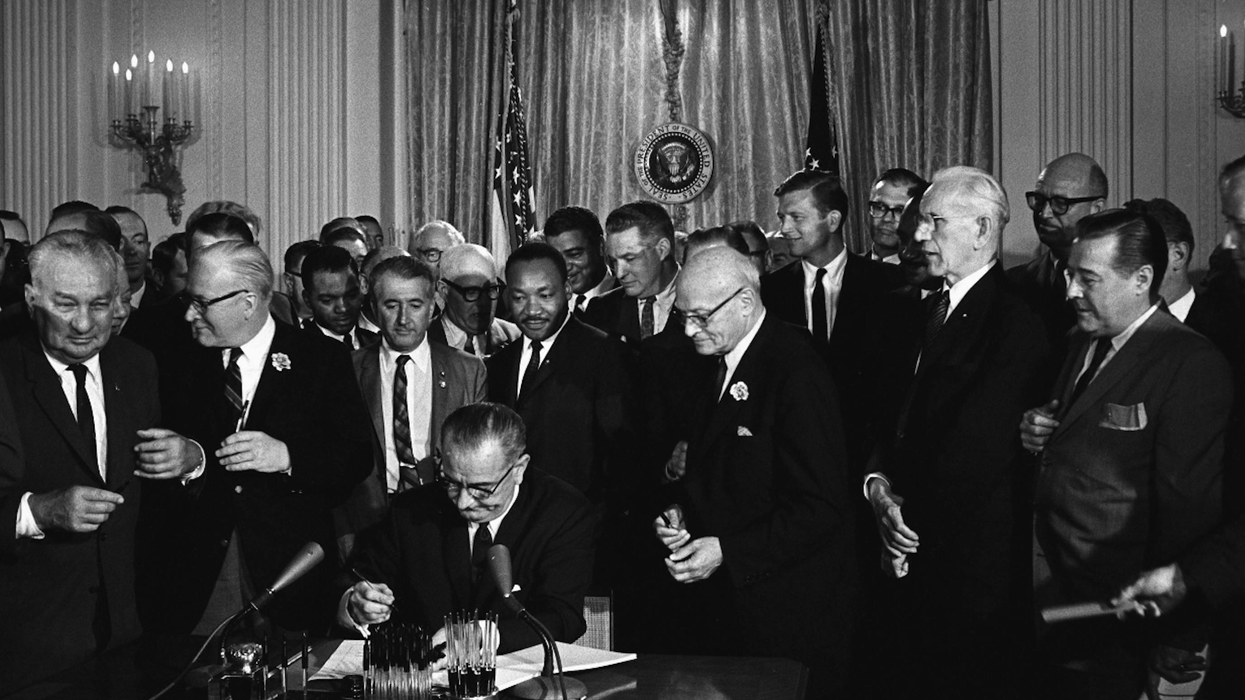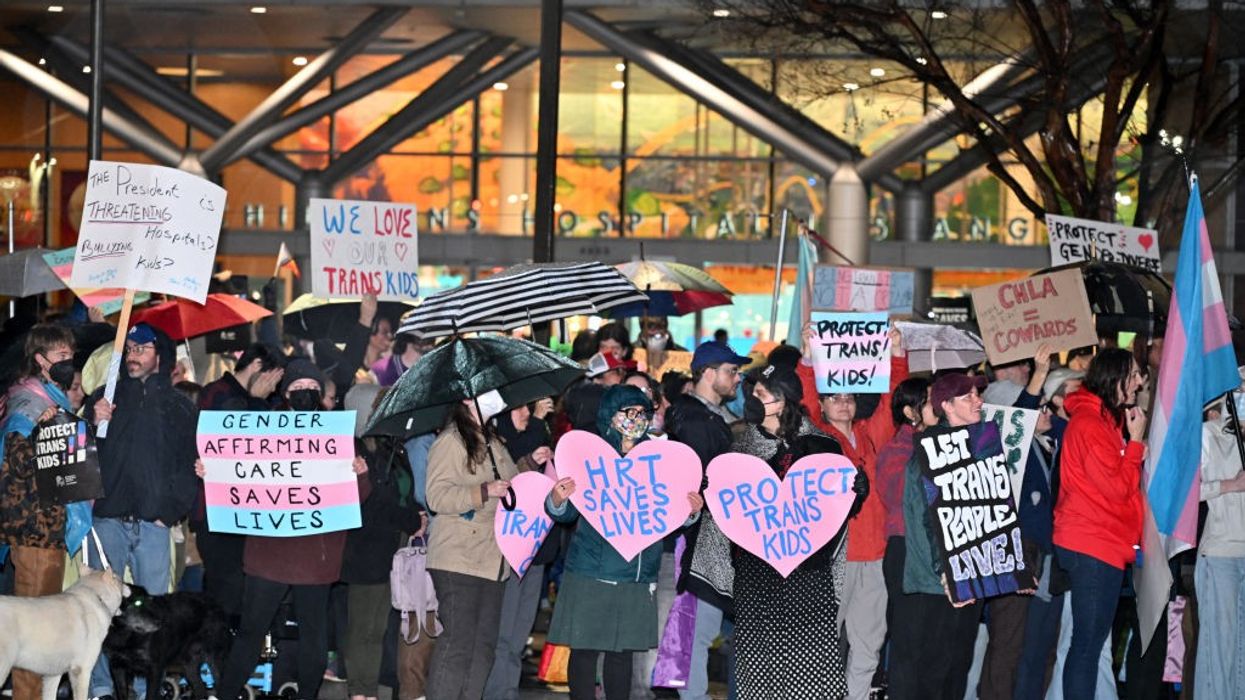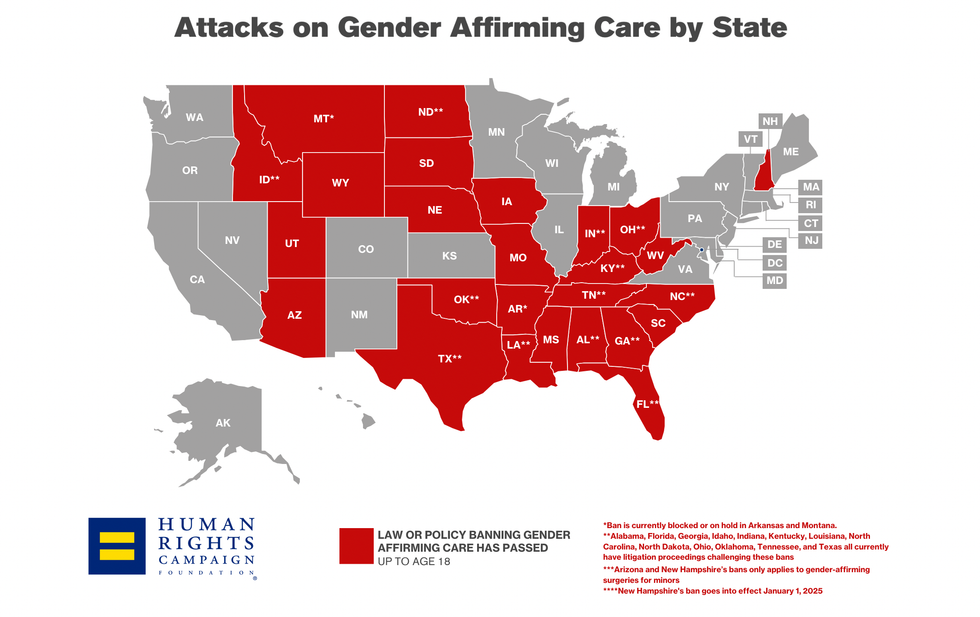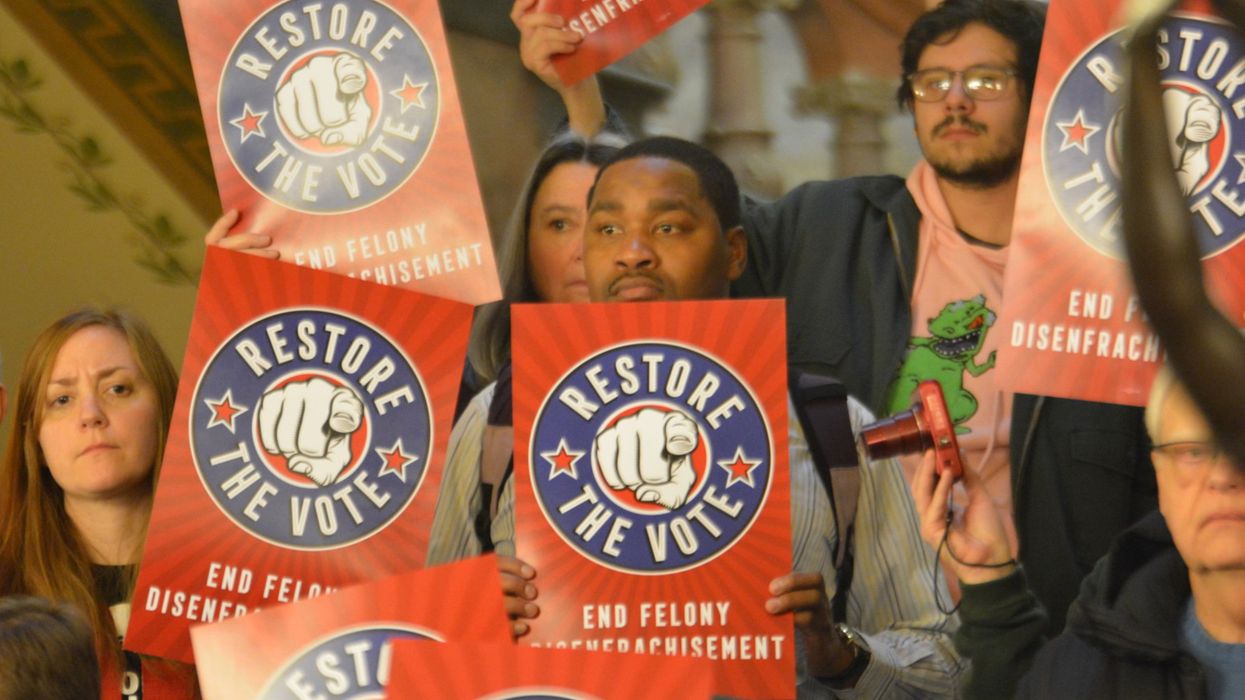Voting Rights Act 'On Life Support' Amid Right-Wing Attacks
"It's time for Congress to restore its full protections by passing the John R. Lewis Voting Rights Advancement Act," said one Democratic lawmaker.
As the Voting Rights Act turned 60 on Wednesday, advocates highlighted right-wing attacks on the landmark legislation and called on Congress to pass a long-stagnant bill aimed at restoring and strengthening one of the most important civil rights laws in U.S. history.
The VRA, signed into law in 1965 by then-President Lyndon B. Johnson amid a groundswell of civil rights activism, was meant to ensure that state and local governments could not "deny or abridge the right of any citizen of the United States to vote on account of race or color."
However, the law has been eroded in recent decades by Republican-controlled state legislatures across the country, including through racially rigged and other gerrymandered congressional maps, restrictions on voter registration, reduction in early voting options, and voter identification laws. These measures disproportionately disenfranchise minority voters, and some GOP officials have admitted that they are intended to give Republican candidates an electoral edge.
In 2013, the U.S. Supreme Court dealt a major blow to the VRA in Shelby County v. Holder, which eviscerated a key section of the law that required jurisdictions with a history of racist disenfranchisement to obtain federal approval prior to altering voting rules. In 2021, the nation's high court voted 5-4 in Brnovich v. Democratic National Committee to uphold Arizona's voting restrictions—even as Chief Justice John Roberts acknowledged that they disproportionately affect minorities.
"Instead of anniversary toasts, election law experts are preparing eulogies for the landmark legislation."
Now, the Supreme Court's right-wing supermajority is poised to "end voting rights as we know them," as Mother Jones reporter Pema Levy put it Tuesday. That's because the justices said last week that they would rehear a case that could result in them striking down Section 2 of the VRA, what University of California, Los Angeles legal scholar Richard L. Hasen calls "the last remaining pillar" of the law.
"Instead of anniversary toasts, election law experts are preparing eulogies for the landmark legislation, which conservative lawyers have attacked on multiple fronts in recent years, after the U.S. Supreme Court took square aim at the statute's constitutionality last week," Jim Saksa wrote Tuesday for Democracy Docket.
As Hasen explained:
Louisiana v. Callais, the case that was the subject of last Friday's order, is a voting case over the drawing of the state's six congressional districts. Louisiana has a one-third Black population, but after the 2020 census the state Legislature drew a districting plan, passed over a Democratic governor's veto, that created only one district in which Black voters would be likely to elect their candidate of choice.
Before Callais, Black voters had successfully sued Louisiana in a case called Robinson v. Ardoin, arguing that Section 2 of the Voting Rights Act required drawing a second congressional district giving Black voters that opportunity. Section 2 says minority voters should have the same chance as other voters to elect their candidates of choice, and courts have long used it to require new districts when there is a large and cohesive minority population concentrated in a given area, when white and minority voters choose different candidates, and when the minority has difficulty electing its preferred representatives.
However, a group of non-Black voters argued in a lawsuit that the consideration of race in creating a second minority-majority district violated the 14th Amendment's equal protection clause and the 15th Amendment's ban on federal and state governments denying citizens the right to vote based on "race, color, or previous condition of servitude."
"To me, this is it," Luis Fuentes-Rohwer, a law professor at Indiana University Bloomington, told Democracy Docket. "I would bet my left arm that they will tell us that Section 2 is in violation of the 15th Amendment."
Civil rights defenders including numerous Democratic lawmakers urged Congress to pass the John R. Lewis Voting Rights Advancement Act, legislation first introduced in 2021 whose sponsors said will "update and restore critical safeguards of the original Voting Rights Act."
"Sixty years ago today, the Voting Rights Act became law thanks to the perseverance of civil rights activists. Today, our sacred right to vote remains under attack," Sen. Raphael Warnock (D-Ga.), one of the bill's primary sponsors, said on social media Wednesday. "We must protect our democracy and honor those who risked everything by passing the John R. Lewis Voting Rights Advancement Act."
Although the bill passed the then-Democrat controlled House of Representatives in 2021, it failed to pass the Senate and a subsequent bid to advance the legislation failed the following year.
Calling for passage of the bill, Rep. Terri Sewell (D-Ala.)—whose home state played a critical role in the civil rights struggle—said on the social media site Bluesky that the VRA "is on life support after being gutted by the Supreme Court and far-right judges."
The Voting Rights Act was signed into law exactly 60 years ago. But today, it is on life support after being gutted by the Supreme Court and far-right judges.It’s time for Congress to restore its full protections by passing the John R. Lewis Voting Rights Advancement Act. 🗳️
[image or embed]
— Rep. Terri A. Sewell (@sewell.house.gov) August 6, 2025 at 6:35 AM
Rep. Jasmine Crockett (D-Texas) said on Bluesky that "60 years ago today, the Voting Rights Act became law. Now, we have an administration conducting voter suppression in real time. In Texas, Republicans are trying to gut our democracy by redrawing maps to erase five Democratic seats—before a single vote is cast."
"The fight continues," Crockett added. "We owe it to those who marched, bled, and believed to keep pushing until every voice is heard and every vote counts."
The ACLU said: "Democracy can't wait. Congress must protect our voting rights at the federal level by passing the reintroduced John Lewis Voting Rights Advancement Act."
However, passing the bill will be next to impossible, given Republican control of both houses of Congress and President Donald Trump in the White House. That doesn't mean voting rights defenders should give up, Legal Defense Fund president and director-counsel Janai Nelson stressed Wednesday.
"If we are to continue the pursuit of the multiracial democracy that the VRA set in motion 60 years ago and if we are to honor our republican form of government founded on representation by the people, we must be unwavering in our commitment to fulfill the promise of Selma, refuse to cede any further ground, and mobilize in support of equal voting rights and fair elections," Nelson said.


 (Image:
(Image: